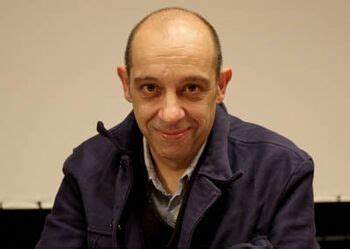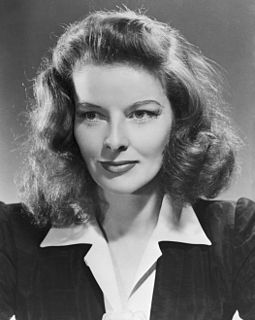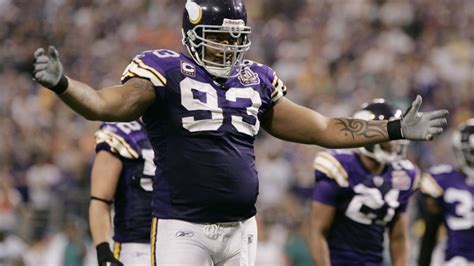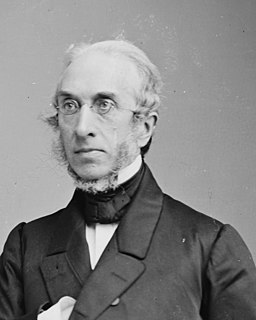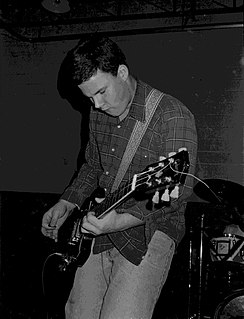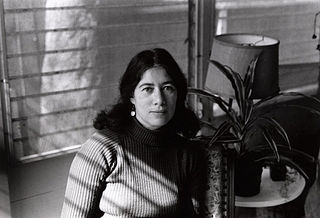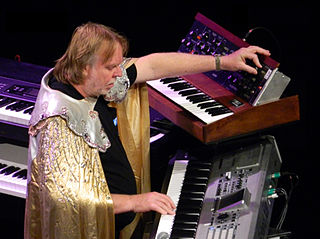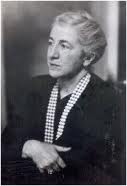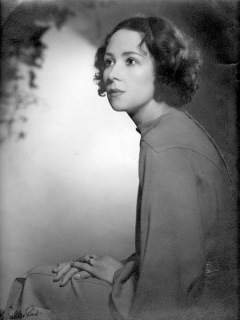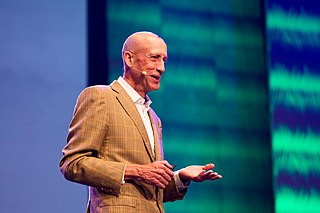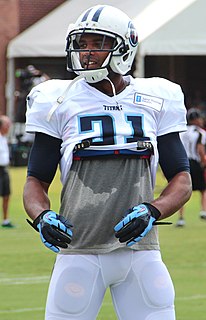Top 772 Henry V Quotes & Sayings - Page 13
Explore popular Henry V quotes.
Last updated on December 18, 2024.
Automobiles will start to decline almost as soon as the last shot is fired in World War II. The name of Igor Sikorsky will be as wellknown as Henry Ford's, for his helicopter will all but replace the horseless carriage as the new means of popular transportation. Instead of a car in every garage, there will be a helicopter.... These 'copters' will be so safe and will cost so little to produce that small models will be made for teenage youngsters. These tiny 'copters, when school lets out, will fill the sky as the bicycles of our youth filled the prewar roads.
The ugly and stupid have the best of it in this world. They can sit at their ease and gape at the play. If they know nothing of victory, they are at least spared the knowledge of defeat. They live as we all should live-- undisturbed, indifferent, and without disquiet. They never bring ruin upon others, nor ever receive it from alien hands. Your rank and wealth, Henry; my brains, such as they are-- my art, whatever it may be worth; Dorian Gray's good looks-- we shall all suffer for what the gods have given us, suffer terribly.
We were brought up in the school that teaches: You do what the script tells you. Deliver the goods without comment. Live it-do it-or shut up. After all, the writer is what's important. If the script is good and you don't get in its way, it will come off okay. I never discussed a script with Spence [Spencer Tracy]; we just did it. The same with Hank [Henry Fonda] in On Golden Pond. Naturally and unconsciously we joined into what I call a musical necessity-the chemistry that brings out the essence of the characters and the work.
A visionary company is like a great work of art. Think of Michelangelo's scenes from Genesis on the ceiling of the Sistine Chapel or his statue of David. Think of a great and enduring novel like Huckleberry Finn or Crime and Punishment. Think of Beethoven's Ninth Symphony or Shakespeare's Henry V. Think of a beautifully designed building, like the masterpieces of Frank Lloyd Wright or Ludwig Mies van der Rohe. You can't point to any one single item that makes the whole thing work; it's the entire work-all the pieces working together to create an overall effect-that leads to enduring greatness.
We are walking down the street holding hands. There is a playground at the end of the block, and I run to the swings and I climb on and Henry takes the one next to me facing the opposite direction. And we swing higher and higher passing each other, sometimes in synch and sometimes streaming past each other so fast that it seems we are going to collide. And we laugh and laugh, and nothing can ever be sad, no one can be lost or dead or far away. Right now we are here and nothing can mar our perfection or steal the joy of this perfect moment.
All of women's stories in the 19th century had either one of two endings: you either had the good Jane Austen marriage at the end and you were happy; or you had the terrible Henry James savage downfall because of your own hubris as a woman, or you've made some great error leading you down a path to ruin. One is the story of love that's successful and the other is the story usually of reckless love that goes terribly wrong that destroys the woman.
Requiring the payment of higher wages will lead to a loss of some jobs and a raising of prices which drives companies to search for automation to reduce costs. On the other hand, those receiving higher wages will spend more (the marginal propensity to consume is close to 1 for low income earners) and this will increase demand for additional goods and services. Henry Ford had the clearest vision of why companies can actually benefit by paying higher wages.
In a healthy individual, a broken bone that has healed properly is strongest where it was once broken. You have not lost any life, Henry told himself. You will still get your fair share of years. Yet the quality of his life changed. Once you've been struck by violence, you acquire companions that never leave you entirely: Suspicion, Fear, Anxiety, Despair, Joylessness. The natural smile is taken from you and the natural pleasures you once enjoyed lose their appeal.
The day of my departure at length arrived. Clerval spent the last evening with us. He had endeavoured to persuade his father to permit him to accompany me and to become my fellow student, but in vain. His father was a narrow-minded trader, and saw idleness and ruin in the aspirations and ambition of his son. Henry deeply felt the misfortune of being debarred from a liberal education. He said little, but when he spoke I read in his kindling eye and in his animated glance a restrained but firm resolve not to be chained to the miserable details of commerce.
So the British, of all ages, still walk the course. On trips to Florida or the American desert, they still marvel, or shudder, at the fleets of electric carts going off in the morning like the first assault wave at the Battle of El Alamein. It is unlikely, for some time, that a Briton will come across in his native land such a scorecard as Henry Longhurst rescued from a California club and cherished till the day he died. The last on its list of local rules printed the firm warning "A Player on Foot Has No Standing on the Course."
If we trace origins of anarchism in the United States, then probably Henry David Thoreau is the closest you can come to an early American anarchist. You do not really encounter anarchism until after the Civil War, when you have European anarchists, especially German anarchists, coming to the United States. They actually begin to organize. The first time that anarchism has an organized force and becomes publicly known in the United States is in Chicago at the time of Haymarket Affair.
Never has the divide between the iPhone world and the politics world been so clear: I saw a bunch of people very well-served by their computers and telephones (very often Apple products) but undeniably shortchanged by our government-run cartel education system. And the tragedy for them - and for us - is that they will spend their energy trying to expand the sphere of the ineffective, hidebound, rent-seeking, unproductive political world, giving the . . .politicians. . .an even stronger whip hand over the Steve Jobses and Henry Fords - and we will be the poorer for it.
I made a picture called Super Mario Bros., and my six-year-old son at the time - he's now 18 - he said, 'Dad I think you're probably a pretty good actor, but why did you play that terrible guy King Koopa in Super Mario Bros?' And I said, 'Well Henry, I did that so you could have shoes,' and he said, 'Dad, I don't need shoes that badly.'
Often, though, the passivity of the woman's role weighs on me, suffocates me. Rather than wait for his pleasure, I would like to take it, to run wild. Is it that which pushes me into lesbianism? It terrifies me. Do women act thus? Does June go to Henry when she wants him? Does she mount him? Does she wait for him? He guides my inexperienced hands. It is like a forest fire, to be with him. New places of my body are aroused and burnt. He is incendiary. I leave him in an unquenchable fever.
Without Virginia, as we must all acknowledge--without her Patrick Henry among the people, her Lees and Jefferson in the forum, and her Washington in the field--I will not say that the cause of American liberty and American independence must have been ultimately defeated--no, no, there was no ultimate defeat for that cause in the decrees of the Most High; but it must have been delayed, postponed, perplexed, and to many eyes and hearts rendered seemingly hopeless.
I make predictions about what I'm going to do before a fight, that makes me nervous because I've gotten so good at it until people really look for me to do it.If I say the man's going to fall in round five, like your man Henry Cooper here, he was stopped in round five but it was on a cut - it wasn't because he was out. But usually 'm on the spot with my predictions and some people really gamble and bet money on the rounds I say.
Henry's universe was modeled on the highball. It was a mixture in which half a pint of the fizziest philosophical and scientific ideas all but drowned a small jigger of immediate experience, most of it strictly sexual. Broken reeds are seldom good mixers. They're far too busy with their ideas, their sensuality and their psychosomatic complaints to be able to take an interest in other people - even their own wives and children. They live in a state of the most profound voluntary ignorance, not knowing anything about anybody, but abounding in preconceived opinions about everything.
There tends to be this comfortable assumption that nuclear weapons won't be used, but I don't think that's warranted, and I think we should seize the opportunity of this time of stability and cooperation and move towards global elimination of nuclear weapons as indeed people like Henry Kissinger, and William Perry, former Secretary of Defense under Clinton, and Sam Nunn, former Senator, and George Schultz, former Undersecretary of State for Ronald Reagan. All of them recently called for achievement of a nuclear weapon-free world.
A big business man was telling Henry Ford about a coach driver of super-expertness with his whip. The driver was telling how he could flick a fly off his horse's ear with his whip-and, a fly alighting just then, he promptly did so. Next he spied a grasshopper beside the road, and he flicked it off with equal dexterity. A little further along the road the passenger noticed an insect on a bush, and nudged the driver to get him. Not on your life, replied the master of the whip. That there insect is a hornet sitting on his nest with an organization behind him. I leave him alone.
It is one of my biggest regrets that Niall Quinn was not here during my time... I felt he was an intelligent player. It would have been a good combination with Thierry Henry. What I like with Quinn is if you look at the player who played next to him, he always scored 40 goals because he had a hand for his head and he just put the ball where you were. He was a team player. A top-class player makes other players look good and he had that player.
Admit that the press transferred the pontificate of Rome to Henry VIII-Admit that the press demolished in some sort the feudal system, and set the serfs and villains free; admit that the press demolished the monasteries, nunneries, and religious houses; into whose hands did all these alienated baronies, monasteries, and religious houses and lands fall? Into the hands of the democracy? Into the hands of serfs and villains? Serfs and villains were the only real democracy in those time. No. They fell into the hands of other aristocrats. . . .
The president of the University said that night, congratulations to you the students, you've won a great victory, now the war will end. And I'm certain that he believed it that night and I believed it and we went away happy. Four days later, Martin Luther King was assassinated. Two months after that, Kennedy was assassinated. Two months after that, Henry Kissinger emerged from the swamp he was living in at Harvard with a plan to expand the war.
[Thomas Henry] Huxley, I believe, was the greatest Englishman of the Nineteenth Century—perhaps the greatest Englishman of all time. When one thinks of him, one thinks inevitably of such men as Goethe and Aristotle. For in him there was that rich, incomparable blend of intelligence and character, of colossal knowledge and high adventurousness, of instinctive honesty and indomitable courage which appears in mankind only once in a blue moon. There have been far greater scientists, even in England, but there has never been a scientist who was a greater man.
Again I take a taxi to Clichy address, but feel that I do not want to go on loving Henry more actively than he loves me (having realized that nobody will ever love me in that overabundant, overexpressive, overthoughtful, overhuman way I love people), and so I will wait for him. So I ask taxi driver to drop me at the Galeries Lafayette, where I begin to look for a new hat and to shop for Christmas. Pride? I don't know. A kind of wise retreat. I need people too much. So I bury my gigantic defect, my overflow of love, under trivialities, like a child. I amuse myself with a new hat.
Contrary to what you may have heard from Henry Rollins or/and Ian MacKaye and/or anyone else who joined a band after working in an ice cream shop, you can't really learn much about a person based on what kind of music they happen to like. As a personality test, it doesn't work even half the time. However, there is at least one thing you can learn: The most wretched people in the word are those who tell you they like every kind of music 'except country.' People who say that are boorish and pretentious at the same time.
If the present American laws concerning the taxation of the profits of corporations, the incomes of individuals, and inheritances had been introduced about 60 years ago, all those new products whose consumption has raised the standard of living of the 'common man' would either not be produced at all or only in small quantities for the benefit of a minority. The Ford enterprises would not exist if Henry Ford's profits had been taxed away as soon as they came into being.
I found myself thinking about the distance between the 60s and today through certain moments. Like the Henry Flynt interview with Ubuweb founder Kenny Goldsmith, where he talks about how he was scarred by how proud John Cage was to be ignorant of popular music. Goldsmith says, "Nobody thinks twice nowadays about listening to everything!" Something that had seemed so uniquely, radically syncretistic in Flynt's day seems much more commonplace now.
I don't think I've invented anything. Henry Ford didn't invent the car, and Steve Jobs didn't invent the cell phone, and he didn't invent the digital revolution, but he could adapt, put things together in creative ways. So I think in what we do there's a lot of "let's try it and sees," whether it's a new color or a new style. But we didn't invent cosmetics or lingerie. How we market them - style, color - those are the things that we do, but it isn't pure creation. It's putting together ideas. I truly believe there's nothing really new in the world.
When Henry Ford decided to produce his famous V-8 motor, he chose to build an engine with the entire eight cylinders cast in one block, and instructed his engineers to produce a design for the engine. The design was placed on paper, but the engineers agreed, to a man, that it was simply impossible to cast an eight-cylinder engine-block in one piece. Ford replied,''Produce it anyway.
The book it reminded me of most is Henry Miller’s The Books in My Life. Like Miller, Shields manages to convey his affection for and admiration of literature, and that, the enthusiasm and admiration, can revitalize the reader’s love for the art form. I’m grateful for How Literature Saved My Life because the book has made me think again – and for the first time in a while – 'Well, what is it we do when we read?' It’s a damned annoying question, but it needs to be asked now and then, and Shields has asked it in a way I find resonant and moving.
If Henry James were still with us, he'd not only approve of Paris, He Said, he could have written it himself, though without his serpentine syntax. It's a delicious treat, studded with wise and beautifully observed detail, that places side by side those perpetually fascinating antagonists, the eager, casual American and the meticulous, pleasure-driven French. Christine Sneed knows everyone's intimate secrets and her book is lively, amusing, and, ultimately, kind to pretty much all of them.
I think the thing about Anne Boleyn is there is an exotic quality to her. This is a woman who wasn’t raised in the English court. She was in the French court and Hapsburg court. She has a continental exotic quality to her. She’s quite a fiery woman and incredibly intelligent. So I think Anne really stood out – fire and intelligence and boldness – in comparison to the English roses that were flopping around court, she would’ve stood out. And Henry noticed that.
I learned an invaluable lesson from a kid in Argentina when we were playing Buenos Aires in 2002. I came out of the hotel and this 16-year-old-boy asked me to sign his copy of my Six Wives of Henry VIII album. As I was signing it I asked him 'what does a 16 year-old like about this old music?' and he looked at me, quite hurt, and said, 'it might be old to you, Mr Wakeman, but I only heard it for the first time last week. When you hear something for the first time, it's new.' I've never forgotten that.
You and I By Henry Alford My hand is lonely for your clasping, dear; My ear is tired waiting for your call. I want your strength to help, your laugh to cheer; Heart, soul and senses need you, one and all. I droop without your full, frank sympathy; We ought to be together—you and I; We want each other so, to comprehend The dream, the hope, things planned, or seen, or wrought. Companion, comforter and guide and friend, As much as love asks love, does thought ask thought. Life is so short, so fast the lone hours fly, We ought to be together, you and I.
Long ago, men went to sea, and women waited for them, standing on the edge of the water, scanning the horizon for the tiny ship. Now I wait for Henry. He vanishes unwillingly, without warning. I wait for him. Each moment that I wait feels like a year, an eternity. Each moment is as slow and transparent as glass. Through each moment I can see infinite moments lined up, waiting. Why has he gone where I cannot follow?
When we return, I will put you forward for Ascension,” Charlotte finished. “I will speak out for her case as well,” Gideon said. “After all, I have my father’s place on the Council—his friends will listen to me; they still owe loyalty to our family—and besides, how else can we be married?” “What?” said Gabriel with a wild hand gesture that accidentally flipped the nearest plate onto the floor, where it shattered. “Married?” said Henry. “You’re marrying your father’s friends on the Council? Which of them?
This kind of inequality - a level that we haven’t seen since the Great Depression - hurts us all. When middle-class families can no longer afford to buy the goods and services that businesses are selling...it drags down the entire economy from top to bottom. America was built on the idea of broad-based prosperity... That’s why a CEO like Henry Ford made it his mission to pay his workers enough so that they could buy the cars he made. It’s also why a recent study showed that countries with less inequality tend to have stronger and steadier economic growth over the long run.
I say that almost everywhere there is beauty enough to fill a person's life if one would only be sensitive to it. but Henry says No: that broken beauty is only a torment, that one must have a whole beauty with man living in relation to it to have a rich civilization and art. . . . Is it because I am a woman that I accept what crumbs I may have, accept the hot-dog stands and amusement parks if I must, if the blue is bright beyond them and the sunset flushes the breasts of sea birds?
We spent the first night of our honeymoon in a country hotel, with Tudor architecture oak beams, and floors which sloped, of the Queen-Elizabeth-Slept-Here variety. There were old tennis-courts - the Tudor kind where Henry VIII was said to have played; and gardens filled with winter heather, jasmine and yellow chrysanthemums. [...] So that first night together was spent in the ancient bedroom with the tiny leaded paned windows, through which shafts of moonlight touched the room with a dreamlike radiance [...]
The power of reading a great book is that you start thinking like the author. For those magical moments while you are immersed in the forests of Arden, you are William Shakespeare; while you are shipwrecked on Treasure Island, you are Robert Louis Stevenson; while you are communing with nature at Walden, you are Henry David Thoreau. You start to think like they think, feel like they feel, and use imagination as they would. Their references become your own, and you carry these with you long after you've turned the last page.
Henry Ward Beecher, so the story goes, was once asked by a young preacher how he could keep his congregation wide awake and attentive during his sermons. Beecher replied that he always had a man watch for sleepers, with instructions, as soon as he saw anyone start nodding or dozing, to hasten to the pulpit and wake up the preacher. Aren't you and I usually less sensible? Would we not be inclined to have the watcher wake up not ourselves but the fellows caught sleeping? In other words, aren't we disposed always to blame others?
There are some good things and some fantastic ones in Auden's early attitude; if the reader calls it a muddle I shall acquiesce, with the remark that the later position might be considered a more rarefied muddle. But poets rather specialize in muddles and I have no doubt which of the muddles was better for Auden's poetry: one was fertile and usable, the other decidedly is not. Auden sometimes seems to be saying with Henry Clay, "I had rather be right than poetry"; but I am not sure, then, that he is either.
One of the most intensely unlikeable figures of the twentieth century, fanatical anti-Semite, enemy of labour unions and proud recipient of medals from Nazi Germany, where Hitler held him in veneration, Henry Ford was also an employer who paid his workers more than his competitors, an innovator who pioneered the assembly line and a visionary whose part in the creation of the twentieth century was so great that Aldous Huxley, in his Brave New World, prefigured a society whose calendar was divided into BF and AF-Before Ford and After Ford.
Then the musical instruments appeared. Dad’s snare drum from the house, Henry’s guitar from his car, Adam’s spare guitar from my room. Everyone was jamming together, singing songs: Dad’s songs, Adam’s songs, old Clash songs, old Wipers songs. Teddy was dancing around, the blond of his hair reflecting the golden flames. I remember watching it all and getting that tickling in my chest and thinking to myself: This is what happiness feels like.
King Henry: But what a point, my lord, your falcon made, And what a pitch she flew above the rest! To see how God in all his creatures works! Yea, man and birds are fain of climbing high. Suffolk: No marvel, an it like your majesty, My lord protectors hawks do tower so well; They know their masters loves to be aloft, And bears his thoughts above his falcon's pitch. Gloucester: My lord, 'tis but a base ignoble mind That mounts no higher than a bird can soar.
It is all a question of sensitiveness. Brute force and overbearing may make a terrific effect. But in the end, that which lives by delicate sensitiveness. If it were a question of brute force, not a single human baby would survive for a fortnight. It is the grass of the field, most frail of all things, that supports all life all the time. But for the green grass, no empire would rise, no man would eat bread: for grain is grass; and Hercules or Napoleon or Henry Ford would alike be denied existence.
You simply cannot give to the world all that you have to give to the world if you do not remain true to your own "selfish" desires. You have a unique set of precious values that can only be fulfilled by pursuing what drives you the most: your passions and dreams. Could Thomas Edison have tended to the downtrodden as Mother Teresa did? Could Albert Einstein have preached salvation as Martin Luther King Jr. did? Could Abraham Lincoln have built cars like Henry Ford? Always, the masses benefit from the individuals who insist on marching to the beat of their own drummer.
Historical fact: People stopped being people in 1913. That was the year Henry Ford put his cars on rollers and made his workers adopt the speed of the assembly line. At first, workers rebelled. They quit in droves, unable to accustom their bodies to the new pace of the age. Since then, however, the adaptation has been passed down: we've all inherited it to some degree, so that we plug right into joy-sticks and remotes, to repetitive motions of a hundred kinds.
I am sure," cried Catherine, "I did not mean to say anything wrong; but it is a nice book, and why should not I call it so?" "Very true," said Henry, "and this is a very nice day, and we are taking a very nice walk, and you are two very nice young ladies. Oh! It is a very nice word indeed! It does for everything. Originally perhaps it was applied only to express neatness, propriety, delicacy, or refinement—people were nice in their dress, in their sentiments, or their choice. But now every commendation on every subject is comprised in that one word.
It wasn't until Hope fluttered over and landed at Alex's feet, peering questioningly up at him, that he finally tore his hands away from his eyes.Oh, my God, he said, sounding disgusted. Why is there a bird looking at me?That's Miss Oliviera's bird, Henry volunteered cheerfully. The captain gave it to her as a present.Kayla punched me in the arm. John's got his captain's license? she whispered. You are so lucky. Frank says he just loads cargo.I glanced at Frank. I wondered if Kayla would like him as much if she knew the cargo he loaded was human souls.
His [Henry Cavendish's] Theory of the Universe seems to have been, that it consisted solely of a multitude of objects which could be weighed, numbered, and measured; and the vocation to which he considered himself called was, to weigh, number and measure as many of those objects as his allotted three-score years and ten would permit. This conviction biased all his doings, alike his great scientific enterprises, and the petty details of his daily life.
